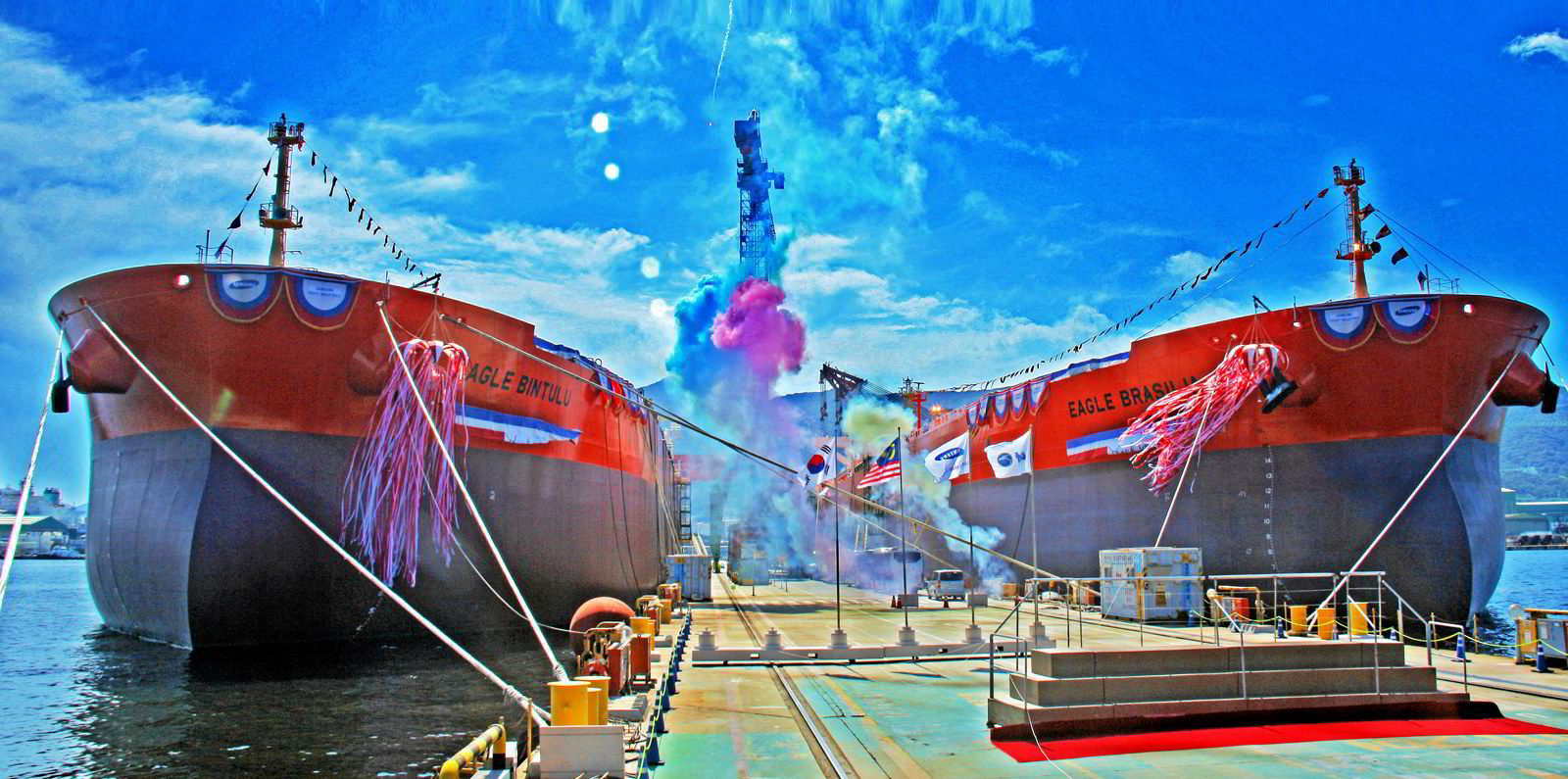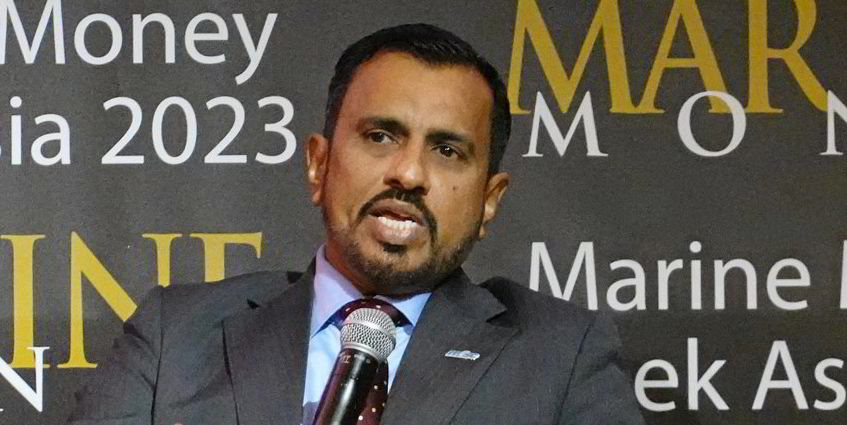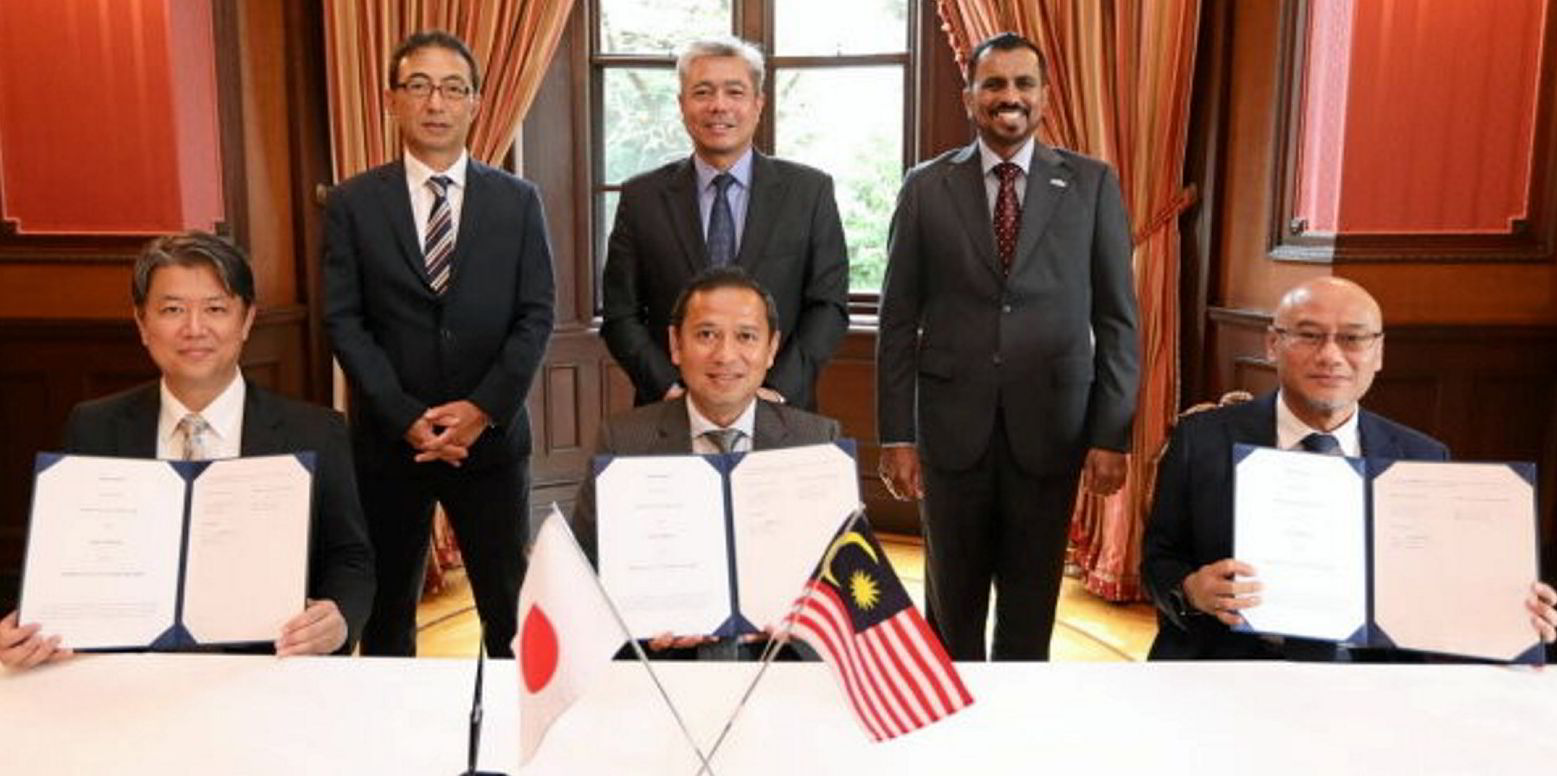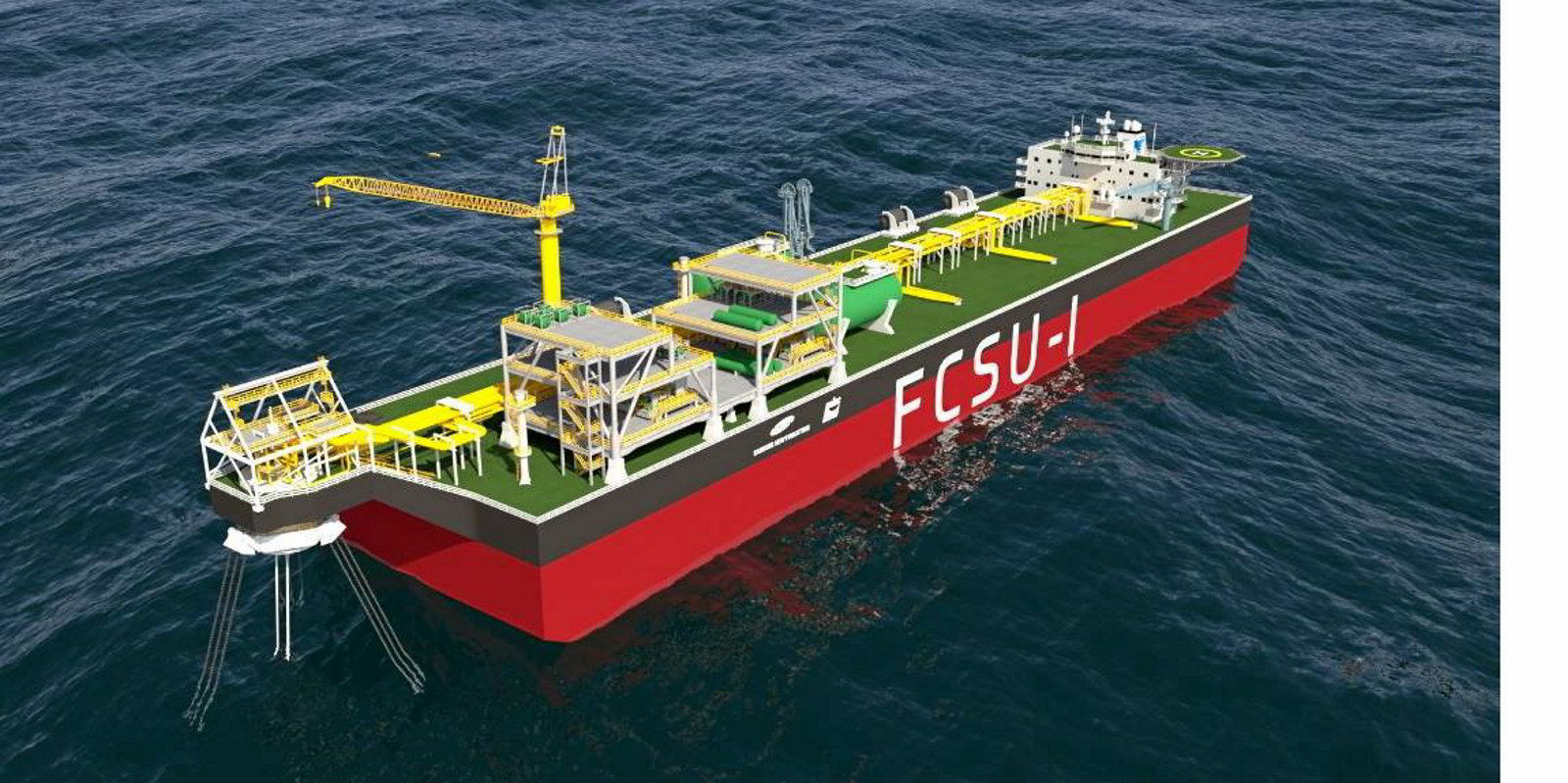Hot on the heels of joining up with Mitsui OSK Lines and Malaysian state energy giant Petronas on a project involving liquid CO2 carriers, MISC Berhad president and group chief executive Captain Rajalingam Subramaniam has called for financiers to play a more prominent role in the risks involved with shipping’s green transition.
Speaking on Tuesday at Marine Money Week Asia 2023 in Singapore, Rajalingam said financial institutions must take on their fair share of the technology risks that are left to the shipping industry to take on.
“Financiers, you are not doing enough,” he told a room full of banking and other ship finance executives.
Rajalingam stressed that investing in new tech required a leap of faith and financiers need to play a role in supporting this.
MISC, via its tanker arm AET, took that leap when it decided to order the world’s first LNG dual-fuel aframax tankers back in 2016, a move Rajalingam said was made to strengthen the value chain and legitimise the green transition challenge.
The 113,000-dwt tankers Eagle Brasilia and Eagle Bintulu were ordered without charters or financing in place.
Rajalingam revealed on Tuesday that the pair, which were delivered in 2018, were financed by MISC’s balance sheet and not through conventional project-based or debt financing.
“We felt that because we were not being treated fairly, and because of the transition risk, we needed to finance the two assets on our balance sheet,” he said.

Potential risks
Rajalingam said there is still a first-mover disadvantage.
Because of this, MISC’s recent investments in carbon capture technology and its latest joint venture with MOL and Petronas are being financed by the company’s balance sheet.
MISC can do this, and will continue to do so, Rajalingam said, but he stressed that this restricts the ability to move the green transition dial forward to only the biggest companies with the strongest balance sheets.
He said this would lead to a divergence in the industry.
“We believe that there will be a convergence eventually, but that convergence must happen faster so that we can make that difference we are talking about for the next generation,” he said.
“It is for the next generation that we are doing this. We leaders of the present, we can retire happily, we can die happily, but what are we leaving behind for the next generation?
“And that leads us to the financial institutions. Don’t just accept policies set by your leaders who say this is out, this is in. Ask questions just like the younger generation and the activists who ask us a lot of questions. Tell your leaders this needs to be shaped differently to move forward a just and responsible transition.”
The agreement announced on Monday among MISC, MOL and Petronas will see them set up a joint venture to invest, develop and monetise new liquid CO2 carriers.
MOL revealed in February last year that it had signed a deal with Petronas CCS Ventures to study the vessels. In June, the pair gained approval in principle for the design of a liquid CO2 carrier and floating storage and offloading unit.





